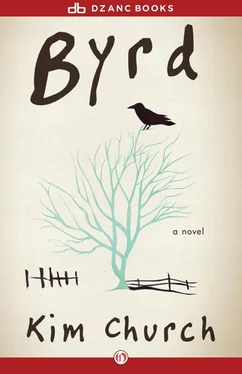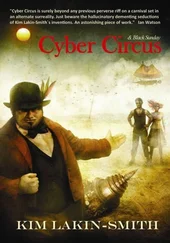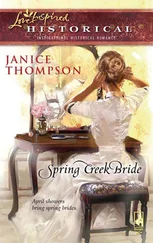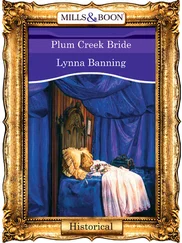“It’s Hemingway. It doesn’t come out.”
He pulls her closer and presses her head into his shoulder. Her face soaks his shirt. He doesn’t care. He isn’t thinking about himself, not yet. It’s too soon; he doesn’t need to think that far ahead. “It’s okay,” he says, keeping his voice deep and even. “Just tell me what you want me to do. Tell me, and I’ll do it.” He has no idea what this means, for himself or for her, but he likes the sound of it. Solid, convincing, strong. Stronger than he has ever been.
Addie’s phone wakes her up.
“How you feeling, baby?”
“Tired, Roland. I’ve never been so tired.”
The next night he forgets again and calls at midnight, her time. “How you feeling?”
“Please, Roland, you have to stop calling so late. I’m so tired I could die.”
“I’m sorry.”
He calls at ten. “Did you get the money I sent?”
“You didn’t send it,” she says. “Golita did. You told her?”
“Golita is family,” he says. “She’s like my sister.”
“Your sister never liked me.”
“Golita’s okay.”
“I sent it back,” she says. A check from Golita for a hundred dollars, less than half the cost of the procedure, and a sticky note in Golita’s handwriting, “Good luck.” Roland hadn’t even addressed the envelope himself.
He calls at seven. She’s in the middle of supper. “Please stop calling,” she says. She isn’t even sleepy this time. “Please just stop.”
Someone has to drive her to and from the clinic. It’s a requirement. She considers calling Shelia, though they’ve talked only once or twice since Shelia’s twins were born. But this is one secret she doesn’t want Shelia to know. It isn’t the abortion; it’s Roland. She doesn’t want Shelia to know she’s been with him again. She especially doesn’t want Shelia to know that being with him was her idea.
She calls the professor. “It’s the least you can do,” she tells him.
He comes for her in his Toyota. He’s wearing a black cap and sunglasses, like a character in a movie. Sometimes he’s such a joke she can’t help but love him.
“Do you know how to get there?” she asks.
He nods.
It’s a cold, blustery March morning. White pear blossoms whip through the air like snow, a spring blizzard. On the sidewalk outside the clinic, half a dozen men are holding signs. They aren’t walking up and down the way you’re supposed to on a picket line. They seem frozen in place. Their signs are big white posters with red magic marker letters, the exact same red on every poster, like they all got together in somebody’s basement.
“Don’t they have jobs?” the professor says.
Addie knows she’s supposed to hate them. But they’re nothing to her. Standing out in the weather in their wool jackets, too cold to move, they’re not even an inconvenience.
Someone should take them coffee, she thinks.
Roland stands at his bathroom mirror shaving off his mustache. The mirror keeps fogging over. He wipes it with the side of his hand.
The bathroom feels smaller when he’s alone. The whole apartment does. Crowded and stale. Nothing nice, just him and his stuff. Dirty clothes, dirty towels, dirty magazines.
When he was on the road he used to daydream about places he might end up. None of them looked like this. This place could be anybody’s. He could be anybody.
Who can blame Addie for not wanting his kid.
She wouldn’t even take money from him, even after he talked it out of Golita. Golita insisted on writing the check herself. “I give you cash, you’ll just put it up your nose,” she said.
Today is the day. It’s happening now, while he shaves. No, fuck, it happened hours ago — he keeps forgetting the time difference. By now it’s done.
Kerouac’s girlfriend had an abortion. Kerouac wrote about her in Desolation Angels . Kerouac’s girlfriend’s name was Joyce, but Kerouac changed it to Alyce in the book. Back then, abortions were illegal. Nineteen fifty-six — the year Roland was born, and Addie.
He splashes water on his face and checks his reflection. Clean face, clean start. Like nothing’s happened yet.
He pictures Addie in a hospital gown, lying on a table, her thin white arms and legs. Is she scared?
Maybe he’ll write her a song. Call it “Desolation Angel.”
The clinic has certain people for certain things. One hands you pills in a paper cup. Another escorts you from room to room: the paperwork room, the changing room, the ultrasound room, small and dark. The lab, all bright lights and needles. The counseling room with windows and potted plants. The procedure room. Finally, the recovery room like a big beauty salon, with magazines and soothing music and reclining chairs lined up in two long rows and a smiling, pink-cheeked woman who walks around serving graham crackers and ginger ale. “More?” she asks. “More?” If kindness could be eaten and drunk, it would taste like graham crackers and ginger ale.
The first couple of rooms — paperwork, changing — are nothing, except the blue gown Addie has to put on is an insult, a thin blue plastic thing that clings to her skin and crackles when she moves and makes her hair electric.
The ultrasound room is where she comes face to face with what she’s doing. She’s on a table and a nurse comes in and rubs warm Vaseline on her belly and glides a camera over her. “Show me,” she says, and the nurse points to a spot on a black-and-white TV screen. The spot is gray and smaller than a baby bird. Which is how Addie tries to think of him in the beginning: as a bird, something that doesn’t belong in her, a mistake, all blind and gray and no feathers. She wonders what others see when they look at the screen, what images they conjure up to fool themselves. She wonders why the clinic, which has people for everything else, doesn’t have a person to help with this. A useful-metaphor woman in a nice blue smock and crepe-soled shoes.
Or maybe that’s the job of the clinic counselor, the one with potted plants. She sits them down, Addie and two others, a nervous high school girl and a bored twenty-year-old, and asks a few questions to make sure they’ve come here of their own free will. Then she gives a speech that’s supposed to make them feel brave and wise and strong.
“Is there anything else you need to talk about?” she asks them.
The high school girl wants to know if she’ll be able to go to the basketball game Friday night. The twenty-year-old says she’s been through this before and knows the drill. Addie says nothing. What can she say? Thirty-two and still no readier to be a mother than they are.
“Will it hurt?” the high school girl asks.
“No,” the twenty-year-old says.
Why not , Addie thinks. Don’t we deserve at least a little pain?
In the procedure room, she lies on a table with her feet in stirrups and stares at the chipped polish on her toenails. Mystic Mauve, the color she wore to California to tell Roland.
“Don’t move,” the doctor says. “I can’t do this if you move.”
She’s shivering; she can’t help it. She’s cold. Her gown is so thin. She twists her head to find the nurse. “Can I please have a blanket?” she asks. “A sheet, anything?”
“Right back,” the nurse says, and disappears out of the room in her silent white shoes, leaving Addie alone with the doctor. Addie tries not to look at him, at his red-rimmed eyes constantly blinking, or the acne scars on his face. She pictures him as a teenager — unpopular, afraid of girls, the shy boy at the dance. Even now, he doesn’t make small talk, no “What kind of work do you do?” or “Have you always lived in North Carolina?” or “How about this weather?” Nothing to take her mind off what he’s doing. His white coat has a dark fleck on the pocket. Addie tries not to look.
Читать дальше












